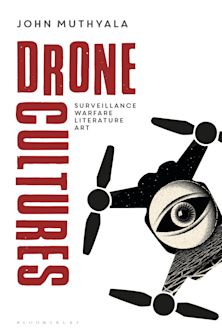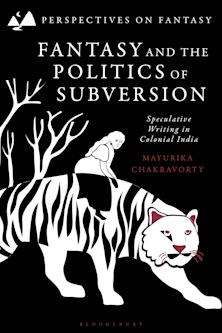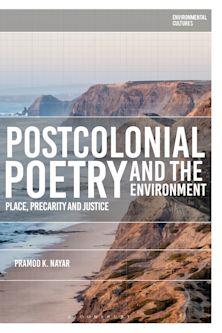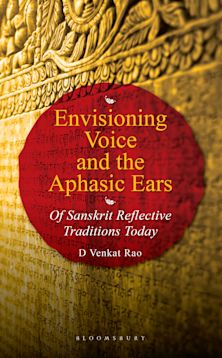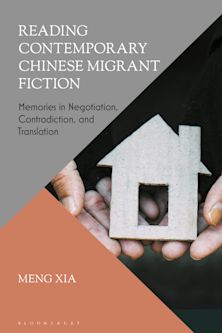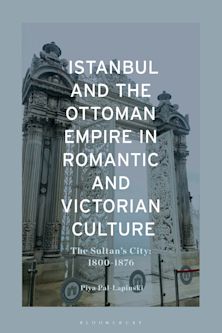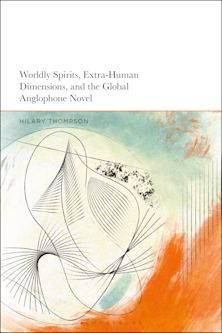- Home
- ACADEMIC
- Literary Studies
- Asian Literature
- Oral and Literary Continuities in Modern Tibetan Literature
Oral and Literary Continuities in Modern Tibetan Literature
The Inescapable Nation
Oral and Literary Continuities in Modern Tibetan Literature
The Inescapable Nation
You must sign in to add this item to your wishlist. Please sign in or create an account
Description
This is the first book-length study to appear in English on the literary, cultural and political roots of modern Tibetan literature. While existing scholarship on modern Tibetan writing takes the 1980s as its point of “birth” and presents this period as marking a “rupture” with traditional forms of literature, this book goes beyond such an interpretation by foregrounding instead the persistence of Tibet’s artistic past and oral traditions in the literary creativity of the present. While acknowledging the innovative features of modern Tibetan literary creation, it draws attention to the hitherto neglected aspects of continuity within the new. This study explores the endurance of genres, styles, concepts, techniques, symbolisms, and idioms derived from Tibet’s rich and diverse oral art forms and textual traditions. It reveals how Tibetan kavya poetics, the mgur genre, life-writing, the Gesar epic and other modes of oral and literary compositions are referenced and adapted in novel ways within modern Tibetan poetry and fiction. It also brings to prominence the complex and fertile interplay between orality and the Tibetan literary text. Embracing a multidisciplinary approach drawing on theoretical insights in western literary theory and criticism, political studies, sociology, and anthropology, this research shows that, alongside literary and oral continuities, the Tibetan nation proves to be an inevitable attribute of modern Tibetan literature.
Table of Contents
Chapter 2: Singing the Nation: Modern Tibetan Music and National Identity
Chapter 3: The Tibetan Tradition of Social Criticism and Modern Tibetan Literature
Chapter 4: Narration of Cultural Traumas in Modern Tibetan Poetry and Fiction
Chapter 5: The Third Generation of Tibetan Poets and the Inescapable Nation
Chapter 6: How Novel Is Contemporary Tibetan Erotic Poetry?
Chapter 7: Conclusion: Whirlpools of Continuity and Creativity
Product details
| Published | Jun 10 2015 |
|---|---|
| Format | Ebook (Epub & Mobi) |
| Edition | 1st |
| Extent | 306 |
| ISBN | 9781498503341 |
| Imprint | Lexington Books |
| Illustrations | 4 BW Illustrations |
| Series | Studies in Modern Tibetan Culture |
| Publisher | Bloomsbury Publishing |
Reviews
-
The journey that this work takes one on is extremely rewarding. This is an absorbing and illuminating read. It is composed in a style that should appeal both to the academic community and a wider audience. For anyone with a specific interest in modern Tibetan literature this is essential reading. Equally, it can be recommended to anyone wishing to learn about contemporary Tibetan culture, and even the traditional literary heritage of Tibet.
The International Journal of Asian Studies
-
This ambitious landmark study offers an in-depth and meticulously researched examination of the persistence of Tibet's artistic and oral traditions in the literary creativity of the present. . . . this book is a stunning piece of research that offers fresh and invaluable insights into a world of modern Tibetan literature. Lama Jebb is to be commended for his unparalleled command of Tibetan oral and literary works, as well as his rich, innovative, and thought-provoking analysis. A beautifully written and highly accessible read, this book was simply a pleasure to read and is recommended to anyone with an interest in modern Tibetan literature.
Asian Highlands Perspectives
-
It is a great pleasure to see yet another monograph published on the understudied field of modern Tibetan literature. Oral and Literary Continuities in Modern Tibetan Literature. The Inescapable Nation. . . is a well-informed venture into the uncharted territory of contemporary Tibetan literature. . . . Lama Jabb’s well-written study makes available in most cases for the first time a wide range of Tibetan poetry to the English reader. It not only presents an informative and thoroughly researched reading of themes and discourses of contemporary Tibetan literature, but leads the reader straight to the core and to the most critical issues of modern Tibetan literature: the issue of Tibet and her future vis-a-vis a politically, technologically, and perhaps even culturally overwhelmingly powerful Chinese nation. As such, it will provide essential reading for anyone interested in modern Tibetan literary but also political history.
Orientalistische Literaturzeitung
-
A stunning and singular accomplishment. Lama Jabb’s uncompromising, thoughtful, and erudite study of modern Tibetan literature is unparalleled. Much is new here: rethinking the nation, challenging ideas of when the contemporary period of literature starts, as well a trove of translations from the original Tibetan sure to delight the reader as much as educate them. This is a book of intellectual commitment and scholarly joy cultivated over a lifetime—from a childhood in a nomad family in Tibet to a scholar’s career at Oxford. This is an important book, destined to be a landmark work in the field.
Carole McGranahan, University of Colorado, Boulder
-
A distinguishing quality of Dr. Lama Jabb’s book is to combine three seemingly distinct materials in an in-depth comparative analysis and shed light upon their intricate connections. It brings together classical Tibetan literature (deemed the finest Tibetan literature by many), modern Tibetan literature (deemed the ‘purest’ Tibetan literature by many) and quotidian oral compositions untouched by either of these categories. It is illuminating, meticulously researched, well-informed, beautifully written, and establishes a new benchmark for the study of contemporary Tibetan culture in general and of modern Tibetan literature in particular.
Hortsang Jigme, Tibetan Poet and Historian
-
To convey the range and depth of the New Literature phenomenon to an Anglophone readership certainly requires a familiarity with the whole corpus, but much more besides: it demands a mastery of a wide spectrum of Tibetan genres, a sound grasp of Western literary theories, and a commensurate sensitivity to the English language. Lama Jabb has all these, and this remarkable book will open a new world as much to specialists of Tibetan civilization as it will to anyone who is interested in modern literature.
Charles Ramble, University of Oxford












